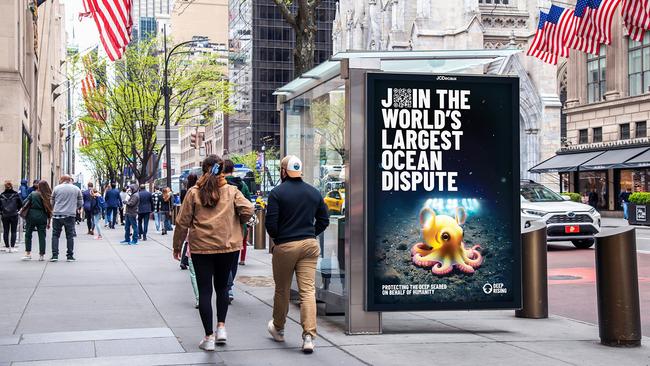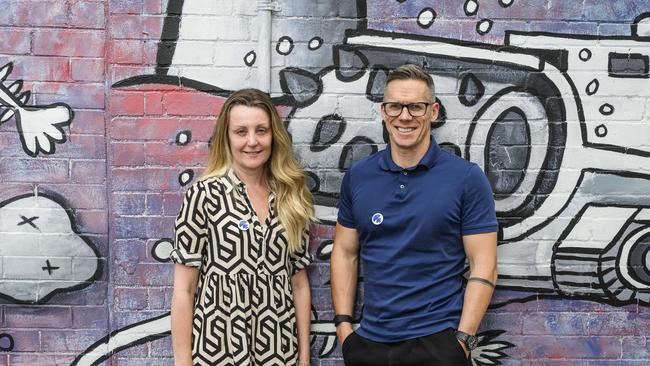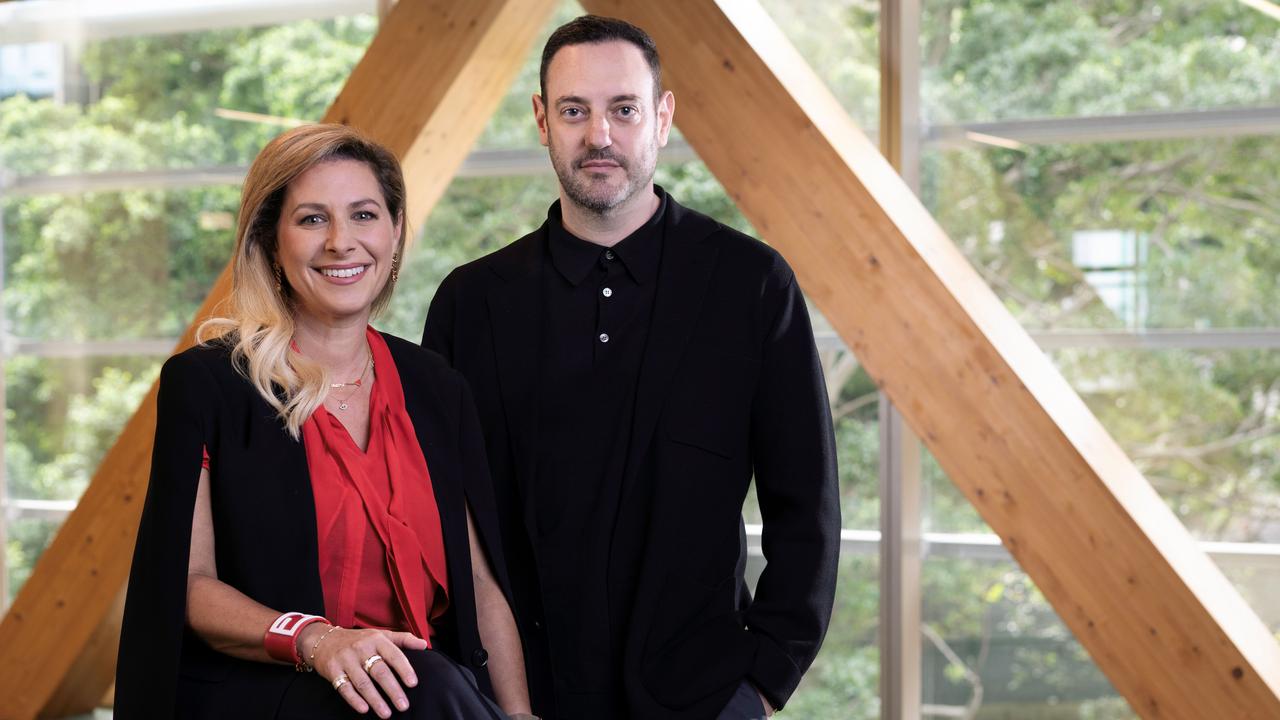Deep Rising campaign goes global in a bid to stop seabed mining
An independent creative agency from Coogee is targeting Earth’s 8 billion people with a campaign to stop Deep Sea Mining.

An ambitious campaign to generate global awareness about the environmental danger of Deep Sea Mining hopes to engage 8.17 billion people — the entire world population.
The World’s Largest Ocean Dispute campaign aims to educate people about the proposed mining activity of a 3,000,000sq km section of the Pacific Ocean and encourage them to take action through the site deeprising.com.
The campaign is inspired by the award-winning documentary film Deep Rising that showcases the millions of species that live in the deep sea bed and highlights the threat to the Earth’s largest carbon sink. It is a “once-in-a-generation opportunity to change the course of history and prevent irreparable harm to our planet”, according to Deep Rising’s head of impact and co-executive producer Laura Clarke.
Ms Clarke told The Growth Agenda the unique approach was crucial to helping people engage with the issue.
“It’s very difficult to create an emotional relationship to the life down there,” she said. “People are busy and they’ve got huge amounts of pressure, so to care about a space that kind of looks empty is really challenging.”
Ms Clarke was also a co-founder of the Palau Pledge, an internationally-recognised tourism campaign that elevated the environmental impacts of tourism and drove action and change for the small Pacific island.
She said her experiences in Palau provided significant insights into how to elevate issues and drive action.
“A core insight that we had based on Palau’s stance, is this idea of the common heritage principle. It doesn’t belong to any of us but it belongs to all of us and to future generations.
“We can get people interested through that principle, rather than just the environmental argument. Petitions are amazing, and they absolutely can cause change, but we wanted to give people a visual representation of this incredible space that gives us life and also have people reclaiming that space on behalf of themselves and future generations.”
The World’s Largest Ocean Dispute leverages the United Nations’ Convention on the Law of the Sea, which states the deep seabed is a common heritage for humanity and must be “held in trust for future generations”.
Using this insight, the contested seabed has been mapped and divided into 8.17 billion sections using GPS coordinates, which people can claim as their birthright. Each claim comes with a unique non-tradeable NFT and birthright certificate with the individualised GPS coordinates, available in 90 languages.
Through a partnership with Web3 organisation Coinweb, each claim will be recorded on an eco-friendly blockchain for transparency.
The campaign has been created pro-bono by Coogee-based creative agency Emotive.
Emotive chief executive Simon Joyce said it was crucial to ensure the complex issues were accessible for a mass international audience. “We were driven by the United Nation laws and the idea that all of us own this seabed. That led us to the simplicity of the idea of the world’s biggest ocean dispute, and this aim to get people to take some agency and ownership through this blockchain structure. It’s a simple insight to drive what is a very complex issue, but hopefully that call to action drives this message to a very large audience.”
The campaign is attracting support globally with media companies such as JCDecaux, ARN, Channel Nine, Mamamia, WeAre8, On the Edge and Surfers for Climate donating more than $2m in advertising and editorial support across Australia, the UK and US.

The campaign also hopes to leverage high profile supporters of the issue, including Aquaman actor Jason Momoa, who is the narrator of the documentary film and has spoken out against deep sea mining and Adrian ‘Ace’ Buchan, former world tour surfer, environmentalist, BBC Green Sport Awards Evergreen Athlete for 2024 is also supporting the campaign.
Ms Clarke said: “Our ultimate aim is to take the voice of humanity into the ISA (International Seabed Authority) and give humanity a voice in the room. If this campaign creates this mass awareness and this mass joint action, then absolutely humanity needs to be given a voice, and so do future generations that are not born yet.”
Ms Clarke said she was working with the Palau government, which could potentially take the campaign to the ISA in a bid to ensure the message of the documentary film is heard and understood.
“We have to be ambitious, the first mining application is going to be submitted next year to the International Seabed Authority,” she said.
“This seabed, which makes up 50 per cent of our planet’s surface, is governed by a very small, unknown organisation based in Kingston, Jamaica, which is affiliated to the UN but it’s not an official UN body.
“For many years, it’s flown under the radar, and this campaign is about to throw them into the spotlight. We’re asking for good governance, and that international law be respected, particularly the common heritage of humankind, and particularly the protection of the marine environment, which is written into the United Nations Convention on the Law of the Sea. So we’re just asking them to do their job, really.
“Not everybody has the time or the headspace to watch a 90 minute independent, hard hitting environmental documentary, so if we were to take one core message from the film and make it accessible to everybody, what was that message going to be?
“That’s what Emotive have done such a great job of translating with this campaign.”


